Graduate First (Passe ton bac d'abord)
Well you can bump and grind. It's good for your mind. You can twist and shout. Let it all hang out. Welcome to the down-and-out children of the revolution. It's 1979. We begin in a college classroom. A lecturer dressed in posh bourgeoisie clothing gives fresh-faced teenagers a lesson in Philosophy. We fade into a static shot of a wooden desk. Innocent images of a love heart, a house and a telephone are etched into the wood. However, the word 'anarchy' is also engraved in bold black letters across previous impressions. We hear the clanking of chairs as the lecturer talks to these young impressionable people about the 'love of wisdom'. With a simple fade to black, we are introduced to a group of scantily clad teenage girls at school taking part in a P.E. lesson.
Graduate First is a day-in-the-life film about a group of friends from a working-class community in the suburbs of France. After finishing their formal educations, they roam around their town plagued by apathy. They are not interested in furthering themselves by going to college and none of them want to get menial jobs working at the supermarket. They want the easy life. Want to escape their working-class poverty-stricken predicament but are unwilling to do anything about it. Family life is dysfunctional so they hang around in bars, drink beer, smoke cigarettes and have casual sex with each other. They have no desire for anything.
Within seconds of this slice-of-life drama, we become aware that Maurice Pialat's Graduate First is a critical examination of the education system in France. With his cinema verite sensibility, Pialat has brought awareness to many problematic facets of French culture. He was a filmmaker that questioned the establishment by reflecting a down in the dirt reality that was akin to the social realist films being produced in Britain by the likes of Ken Loach, who directed Poor Cow (1967) and Kes (1970). Pialat's films deal with such issues as foster care, cancer, mental abuse, promiscuous teenagers, abortion, corruption, religion and mental illness. In the early 60s, audiences from around the world were accustomed to watching 'fantasy visions' of France through the New Wave movement by the likes of Francois Truffaut (Jules et Jim [1962]) and Jean-Luc Godard (Breathless [1960]). It wasn't until Pialat hit the scene in the late 70s that foreign audiences realised that the French we're just the same as the rest of us. Real everyday people living their real everyday life with real everyday concerns in a real everyday world. They weren't all middle-class bourgeoisie types with tweed jackets and cigars.
There is a loveable down-to-earth heartbeat to Graduate First . We were all in the position of leaving formal education when we were young, not knowing what the hell we wanted to do with our lives. It was the transition period when we were forced to jump out of the stress-free life of childhood and transgress into the strange new world of adulthood with responsibilities of having to get a job in the 'real world'. At this stage in our life's some of our friends moved away, others went to college, a few went to prison, some got jobs, a few started to claim dole, others got married and began to have babies. Graduate First is a documentary-style movie that looks into these realistic facets of teenage life.
Bernard, who still lives at home with his parents, dreams about escaping his monotonous life by moving to Paris with his friend Philippe. He feels frustrated by the lack of opportunities available to him in his small town so he decides to live a lazy life hanging out in cafes and sleeping with as many women as he possibly can. Waking up one afternoon in his bedroom, which is plastered with posters of the Vietnam War and revolutionary figures, he goes into the kitchen. Sitting at the table he is met with instant revulsion from his mother, 'What are you gonna do with your life?' Bernard doesn't reply. She hounds him with questions about earning a living, criticises him for staying out until three in the morning and sleeping all day. Bernard is at odds with his mothers traditional views and feels like he's being vilified but he has yet to face up to his responsibilities as an adult. Pialat's hand-held camera observes Bernard with a clinical matter-of-fact documentary style; this is a real working-class teenager in a real working-class house filled with real working-class décor.
Graduate First doesn't feel like a movie. It reflects the ordinary life we live with our own friends and family. Sadly, this kind of naturalism is becoming lost in the haze of exaggerated Hollywood cinema. There's something special that Graduate First projects onto the screen. We identify with the main characters. They are people we know. Pialat's direction of the cast is flawless; you become spellbound by their personalities because everything they do is so natural. Pialat utilised a group of unprofessional actors to give the film a cinema verite edge and it works. Bernard was plucked out of school to appear in the film. It's a reflection of reality filtered through a camera lens. It helps to define our own identities when we watch movies like this. We are, all too often, force-fed fabricated filmic visions of the 90210 generation with rich preppy Americans. That's not us. We are in dire need to reconnect with our European roots; we are in trouble of losing our identities in this Brave New World.
The movie is a classic example of 1970s social realist cinema. Throughout his career, Pialat has produced a timeless body of work that challenges our perception of cinema. That's why he should have be hailed as the French Ken Loach. It's a colossal shame that Pialat didnt get the recognition he deserved. He is a director that has vanished into the mists of time. Graduate First is a thoroughly absorbing and entertaining exploration of teenage life.
Special Features
An 11-minute, 2003 video interview with Pialat collaborator's Arlette Langmann and Patrick Grandperret, conducted by Serge Toubiana (former editor-in-chief of Cahiers du cinéma and director of the Cinémathèque Française).
Après le bac [After the Bac] -- a 26-minute, 2003 documentary featurette by Serge Toubiana and Sonia Buchman that catches up with the cast and setting of the film in the present era.
Original trailer for the film, and trailers for the six other Maurice Pialat features available from The Masters of Cinema Series.
A lengthy booklet with a new essay by filmmaker and educator Jean-Pierre Gorin, and newly translated interviews with Maurice Pialat.
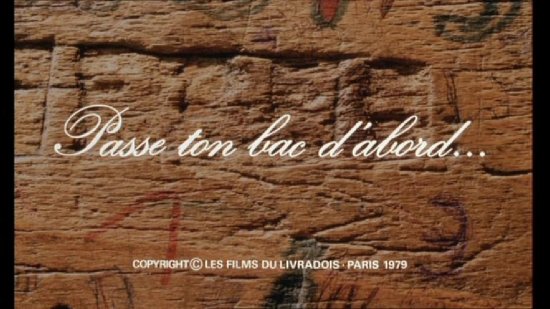
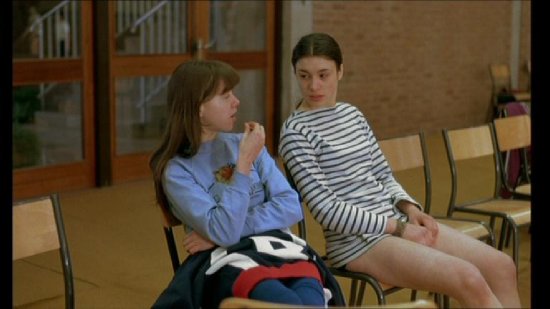
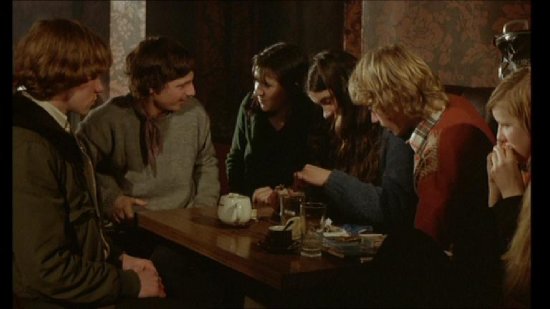
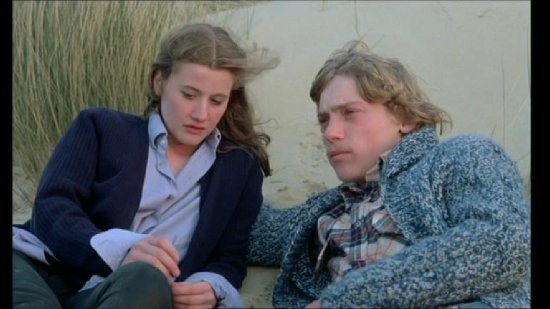
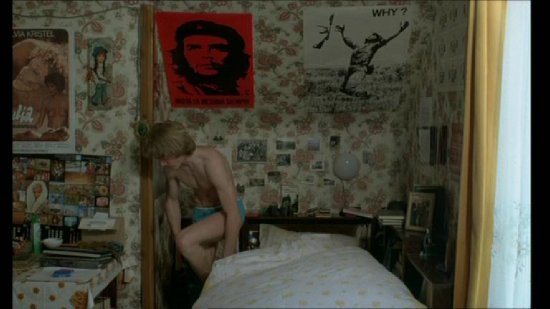
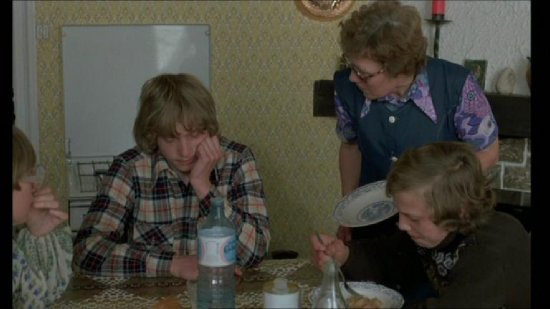
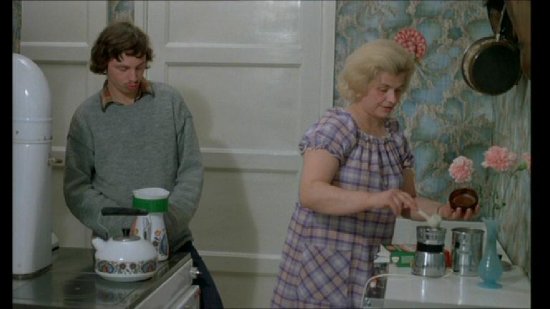
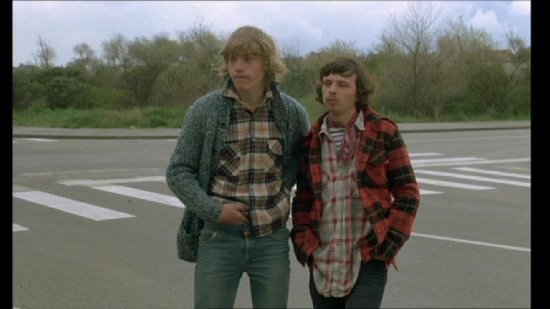
Your Opinions and Comments
Be the first to post a comment!